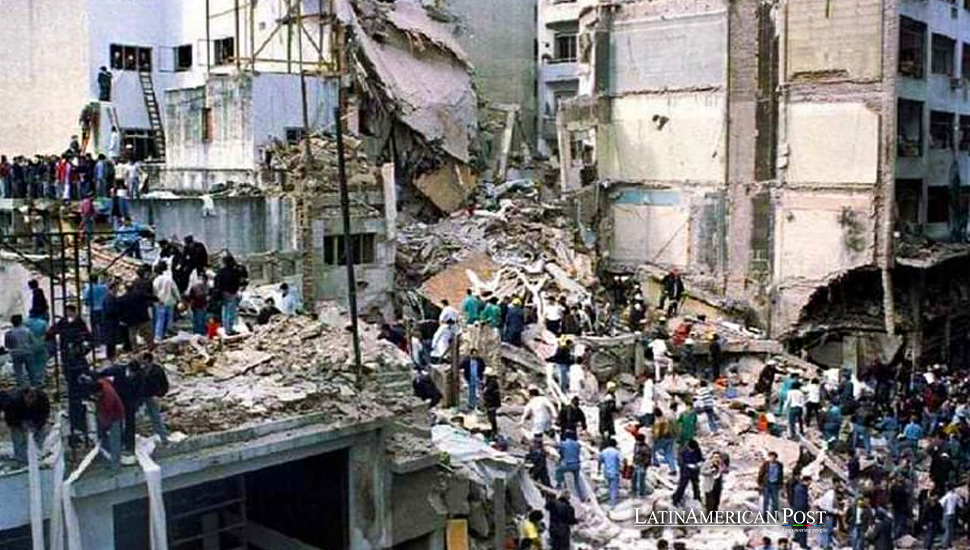Argentina AMIA Bombing’s Lasting Impact

On July 18, 1994, a devastating car bomb attack on Buenos Aires’ AMIA Jewish community center claimed 85 lives, marking Argentina’s darkest day and sending ripples of fear and solidarity across Latin America. This article explores the attack’s unresolved legacy and broader regional implications.
The AMIA Bombing Shakes Buenos Aires
On a chilly winter morning in Buenos Aires, Argentina, the peace was shattered by an explosion that would become a defining moment in the nation’s history. The Argentine Israelite Mutual Association (AMIA) building, a hub of Jewish cultural and community life, was reduced to rubble by a car bomb, claiming 85 lives and leaving over 300 injured. This act of terror, the deadliest in Argentina’s history, not only devastated the local Jewish community, the largest in Latin America but also sent shockwaves through the continent, challenging the security and diplomatic relations of nations far beyond Argentina’s borders.
The AMIA bombing was not an isolated event but followed a similarly deadly attack on the Israeli Embassy in Buenos Aires two years prior, which left 29 dead. Together, these attacks underscored the vulnerability of Jewish communities in Latin America to international terrorism, exposing the dark underbelly of anti-Semitism and geopolitical conflicts playing out on a global stage.
Investigations into the AMIA bombing have been fraught with controversy and confusion. Initially pointing towards Iranian involvement, with Hezbollah and several Iranian officials named as orchestrators, the case quickly became mired in geopolitical tensions and denials from Iran. The quest for justice has been hampered by accusations of procedural irregularities, leading to the acquittal of several suspects in early trials and the subsequent conviction of Argentine officials for negligence and corruption.
The Nisman Affair: A Prosecutor’s Allegations Rock Argentina
The case took a dramatic turn with the accusations by prosecutor Alberto Nisman, who alleged that former President Cristina Fernández de Kirchner and her administration had conspired with Iran to absolve Iranian officials from blame in exchange for economic benefits. Nisman’s mysterious death, just hours before he was due to present his findings, plunged the country into a maelstrom of speculation and outrage, further complicating the pursuit of truth and justice.
Decades after the attack, the AMIA bombing remains an open wound for Argentina and a symbol of the global struggle against terrorism and anti-Semitism. The pursuit of justice continues, with international warrants still out for the arrest of several Iranian officials. The case highlights the challenges of investigating and prosecuting acts of global terrorism, the complexities of diplomatic relations in a globalized world, and the enduring impact of such tragedies on communities and nations.
Regional Repercussions: The AMIA Bombing’s Impact on Latin America
The AMIA bombing not only reshaped Argentina’s foreign policy, particularly its relations with Iran but also had profound implications for the entire Latin American region. It raised awareness of the potential for international terrorism to strike close to home, prompting a reevaluation of security measures and intelligence-sharing among nations. The attack also fostered solidarity among Jewish communities across the continent, uniting them in grief and a shared determination to combat anti-Semitism and terrorism.
In the aftermath of the bombing, Argentina’s Jewish community displayed remarkable resilience, rallying to rebuild and reaffirm their presence and contributions to the country’s cultural and social fabric. The tragedy has been memorialized in various ways, including through education and the arts, serving as a poignant reminder of the costs of hatred and the importance of vigilance and unity in the face of threats to democracy and pluralism.
Also read: Argentine Justice Orders Eviction of Illegally Occupied Military Lands in Bariloche
The AMIA bombing’s impact extends beyond the immediate victims and their families, affecting national policies, international relations, and community security across Latin America. It serves as a stark reminder of the need for global cooperation in the fight against terrorism and the ongoing struggle for justice and accountability. As Argentina and its neighbors continue to grapple with these issues, the memory of the AMIA bombing remains a rallying cry for peace, tolerance, and resilience in the face of adversity.





